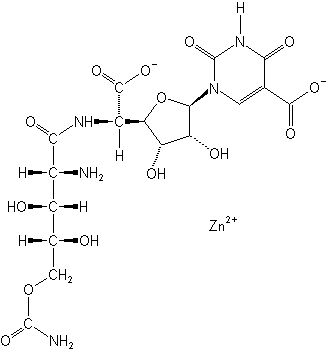 Vitamin B complex is actually a group of vitamins that include eight B vitamins. These B vitamins can be found in animal and plant sources, as well as in supplement form. They play a variety of roles in the body and provide numerous benefits. Taking too much of any vitamin can be dangerous and cause side effects. Before you take B complex supplements, it is best to consult with your doctor to see what dosage is appropriate for you.
Vitamin B complex is actually a group of vitamins that include eight B vitamins. These B vitamins can be found in animal and plant sources, as well as in supplement form. They play a variety of roles in the body and provide numerous benefits. Taking too much of any vitamin can be dangerous and cause side effects. Before you take B complex supplements, it is best to consult with your doctor to see what dosage is appropriate for you.
Proper Bodily Functioning
B vitamins help the body convert food into glucose, which provides energy to the body. Fat and protein metabolizing is also aided by B vitamins, as well as healthy nervous system functioning. Vitamin B1, also known as thiamine, helps boost the immune system and strengthen the body under stressful conditions. Vitamin B6, known as pyroxidine, helps the body make certain hormones, as well as chemicals in the brain called neurotransmitters. It also helps boost immune system functioning.

Lower Cholesterol
Vitamin B3, also known as niacin, has been shown to lower "bad" cholesterol levels, or LDL, levels and boost "good" cholesterol, known as HDL. This may also help prevent hardening of the arteries. Large doses of niacin can cause side effects and may cause liver problems. Before using B complex or niacin for cholesterol reasons, it is best to consult with your health care provider.
Promote Healthy Growth
Folate, one of the B complex vitamins, or its synthetic form folic acid, helps promote healthy fetal development as well as helps to make new cells in the body. Folate is necessary to make RNA and DNA, which help form cells. This vitamin also aids in producing red blood cells and helps prevent anemia. During pregnancy, folate protects against neural tube defects.
Health Benefits of Zinc
Proper functioning of the immune and digestive systems, control of diabetes, reduction of stress levels, energy metabolism, and an increased rate of healing for acne and wounds. Also, zinc is helpful in terms of pregnancy, hair care, eczema, weight loss, night blindness, colds, eye care, appetite loss and many other minor conditions.

Zinc, being an important mineral, plays a vital role in protein synthesis and helps regulate the cell production in the immune system of the human body. Zinc is mostly found in the strongest muscles of the body and is found in especially high concentrations in the white and red blood cells, eye retina, skin, liver, kidneys, bones and pancreas. The semen and prostate gland in men also contain significant amounts of zinc.
In the human body, there are more than 300 different enzymes that require zinc to function normally. Researchers believe that 3,000 proteins out of the approximately 100,000 in the body consist predominantly of zinc.
A normal person contains two to three grams of Zinc at any given time. There are organs of the human body which secrete Zinc, such as the salivary gland, the prostate gland and the pancreas. Even cells involved in the activity of the immune system secrete zinc. As such, it is used up in various metabolic processes and eliminated through normal excretory and urinary channels, so it needs to be replenished often. If it isn’t you will begin to suffer from deficiency symptoms, a list of which can be found below.
